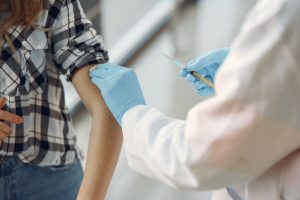 Vaccines are one of the most effective ways to prevent the spread of infectious diseases throughout the world. The overwhelming majority of people who receive vaccines do not experience serious problems, and the benefits greatly outweigh the threat of risk. However, similar to the risks associated with natural supplements and other pharmaceuticals, some vaccine recipients may suffer adverse reactions. Depending on the nature and circumstance of the injury, victims may file a Texas medical malpractice or pharmaceutical error lawsuit. Further, the National Vaccine Injury Compensation Program (VICP) provides compensation to individuals who have suffered injuries from certain vaccines.
Vaccines are one of the most effective ways to prevent the spread of infectious diseases throughout the world. The overwhelming majority of people who receive vaccines do not experience serious problems, and the benefits greatly outweigh the threat of risk. However, similar to the risks associated with natural supplements and other pharmaceuticals, some vaccine recipients may suffer adverse reactions. Depending on the nature and circumstance of the injury, victims may file a Texas medical malpractice or pharmaceutical error lawsuit. Further, the National Vaccine Injury Compensation Program (VICP) provides compensation to individuals who have suffered injuries from certain vaccines.
Nearly 40 years ago, in response to growing lawsuits against medical providers and pharmaceutical companies, the federal government created the VICP. The creation followed a slew of lawsuits stemming from some parents’ beliefs that certain vaccines resulted in injuries to their children. Many companies halted the production of vaccines because of the onslaught of lawsuits. The vaccine shortage posed a serious threat to the nation’s health. As such, the VICP fund works to compensate those who suffer injuries because of a reaction to a childhood vaccine.
The VICP only covers certain vaccines such as those that prevent diphtheria, tetanus, pertussis, Hepatitis A, Hepatitis B, human papillomavirus, influenza, measles, mumps, rubella, polio, rotavirus, and varicella. If a Texas injury victim or their loved ones believe that they suffered a vaccine error, they should contact an attorney to file a petition through the VICP. Currently, the program does not cover the COVID-19 vaccine; however, some sources have reported that Johnson & Johnson’s COVID-19 vaccinations may result in a rare clotting condition. Federal officials have halted the use of the pharmaceutical company’s vaccine to determine, what if any, the vaccine plays in the clotting condition. In many cases, a person’s reaction to a medication or vaccine is not because of a defect in the vaccine or medication but rather an allergic reaction that a medical provider missed.

 Texas Injury Lawyers Blog
Texas Injury Lawyers Blog


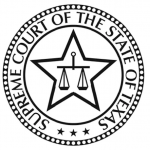 The Supreme Court of Texas recently issued an
The Supreme Court of Texas recently issued an 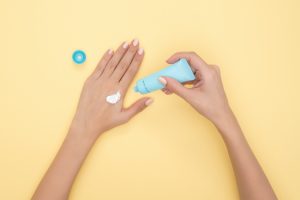 CANCER CAUSING BENZENE FOUND IN SUNSCREENS LINKED TO HIGHER RISK–KILLER TAN CAN BE DEADLY – 40 SUNSCREEN BRANDS RECALLED
CANCER CAUSING BENZENE FOUND IN SUNSCREENS LINKED TO HIGHER RISK–KILLER TAN CAN BE DEADLY – 40 SUNSCREEN BRANDS RECALLED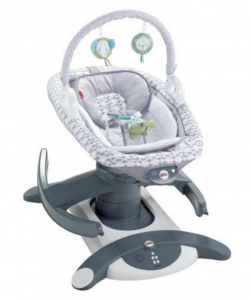 Various state and federal agencies regulate the safety of infant and baby products. While these agencies possess the power to administer and enforce federal safety laws, many dangerous products continue to make their way into the consumer stream. Every year infants and children in Texas experience exposure to dangerous and potentially life-threatening products. When this occurs, family members should consider filing a Texas product liability claim against the defective product’s manufacturer or retailer.
Various state and federal agencies regulate the safety of infant and baby products. While these agencies possess the power to administer and enforce federal safety laws, many dangerous products continue to make their way into the consumer stream. Every year infants and children in Texas experience exposure to dangerous and potentially life-threatening products. When this occurs, family members should consider filing a Texas product liability claim against the defective product’s manufacturer or retailer.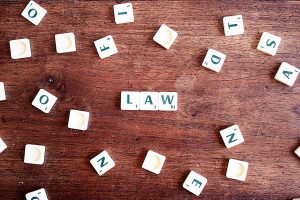 The Supreme Court of Texas issued a
The Supreme Court of Texas issued a  Self-driving, or autonomous cars, are revolutionizing the way the public looks at travel and car ownership. These vehicles turn active drivers into passive passengers, allowing motorists to rely on the car’s advanced computerized system to navigate the roads and avoid collisions. However, these cars may result in a serious Texas car accident, as the new technology is still being refined.
Self-driving, or autonomous cars, are revolutionizing the way the public looks at travel and car ownership. These vehicles turn active drivers into passive passengers, allowing motorists to rely on the car’s advanced computerized system to navigate the roads and avoid collisions. However, these cars may result in a serious Texas car accident, as the new technology is still being refined. Vaccines are one of the most effective ways to prevent the spread of infectious diseases throughout the world. The overwhelming majority of people who receive vaccines do not experience serious problems, and the benefits greatly outweigh the threat of risk. However, similar to the risks associated with natural supplements and other pharmaceuticals, some vaccine recipients may suffer adverse reactions. Depending on the nature and circumstance of the injury, victims may file a Texas medical malpractice or pharmaceutical error lawsuit. Further, the National Vaccine Injury Compensation Program (VICP) provides compensation to individuals who have suffered injuries from certain vaccines.
Vaccines are one of the most effective ways to prevent the spread of infectious diseases throughout the world. The overwhelming majority of people who receive vaccines do not experience serious problems, and the benefits greatly outweigh the threat of risk. However, similar to the risks associated with natural supplements and other pharmaceuticals, some vaccine recipients may suffer adverse reactions. Depending on the nature and circumstance of the injury, victims may file a Texas medical malpractice or pharmaceutical error lawsuit. Further, the National Vaccine Injury Compensation Program (VICP) provides compensation to individuals who have suffered injuries from certain vaccines.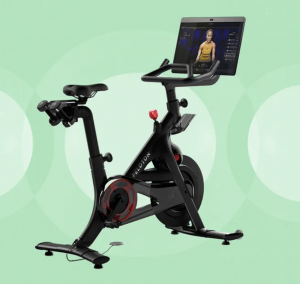 During the course of the COVID-19 global pandemic, tens of millions of people across the country experienced moving their work lives, but also their active lives, into their homes and away from typical common spaces such as gyms or exercise studios. As people began both working and attempting to stay active during quarantine and to practice social distancing, demand for at-home exercise options and equipment has been on the rise. But even at home, could these equipment options pose risks to you and your family? Those injured due to a dangerous piece of exercise equipment may be able to pursue a Texas product liability claim against the manufacturer.
During the course of the COVID-19 global pandemic, tens of millions of people across the country experienced moving their work lives, but also their active lives, into their homes and away from typical common spaces such as gyms or exercise studios. As people began both working and attempting to stay active during quarantine and to practice social distancing, demand for at-home exercise options and equipment has been on the rise. But even at home, could these equipment options pose risks to you and your family? Those injured due to a dangerous piece of exercise equipment may be able to pursue a Texas product liability claim against the manufacturer. In light of COVID-19, everyone seems to be shopping online more frequently. Whether you’re shopping online to adhere to social distancing concerns or simply out of boredom, Amazon has become an important part of regular online shopping trips in many households. When a product purchased from the online retailer, however, injures someone in your family, is Amazon liable in a Texas products liability lawsuit? Or is the entity or individual who sold you the product responsible?
In light of COVID-19, everyone seems to be shopping online more frequently. Whether you’re shopping online to adhere to social distancing concerns or simply out of boredom, Amazon has become an important part of regular online shopping trips in many households. When a product purchased from the online retailer, however, injures someone in your family, is Amazon liable in a Texas products liability lawsuit? Or is the entity or individual who sold you the product responsible? When a consumer purchases a new product, they rightfully trust that the designer, manufacturer, and retailer took measures to ensure the product’s safety and efficacy. However, despite testing standards and federal oversight, some dangerous products make their way into the consumer stream. Products with a design or manufacturing defect or that are inherently dangerous may cause serious injuries and lead to a Texas product liability lawsuit. The United States Consumer Product Safety Commission (USCPSC) requires manufacturers, distributors, and similar entities to report any issues with their products and issue recalls if necessary. However, these parties may still face liability even if they issued a recall.
When a consumer purchases a new product, they rightfully trust that the designer, manufacturer, and retailer took measures to ensure the product’s safety and efficacy. However, despite testing standards and federal oversight, some dangerous products make their way into the consumer stream. Products with a design or manufacturing defect or that are inherently dangerous may cause serious injuries and lead to a Texas product liability lawsuit. The United States Consumer Product Safety Commission (USCPSC) requires manufacturers, distributors, and similar entities to report any issues with their products and issue recalls if necessary. However, these parties may still face liability even if they issued a recall.